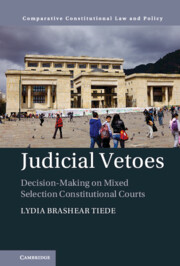Beginning with the opening-up reforms of Deng Xiaoping, the Chinese government has treated law as a central tool for regulating the economy and guiding institutional transformation. Over the decades, since 1949, China’s path to modernization has been marked by profound, experimental transformations that selectively combined foreign expertise with Chinese foundations. A key feature of this process has been China’s strategic adoption and adaptation of legal transplants. While initially a recipient of foreign legal models, China is now increasingly exporting its own approaches through the Belt and Road Initiative (BRI). This article examines how China’s engagement in shaping the legal and regulatory frameworks of host countries under the BRI differs from traditional models of legal transplants. Rather than imposing, China draws on its historical experience to adopt a pragmatic, adaptive strategy defined by three core characteristics: the combination of Chinese and Western practices; an emphasis on voluntariness tempered by asymmetrical power relations; and a prioritization of policy objectives over autonomous legal principles. While this strategy raises concerns about legal fragmentation and institutional coherence, it also fosters a space for legal pluralism, offering an alternative to the homogenization typically associated with Global North legal transplants.

